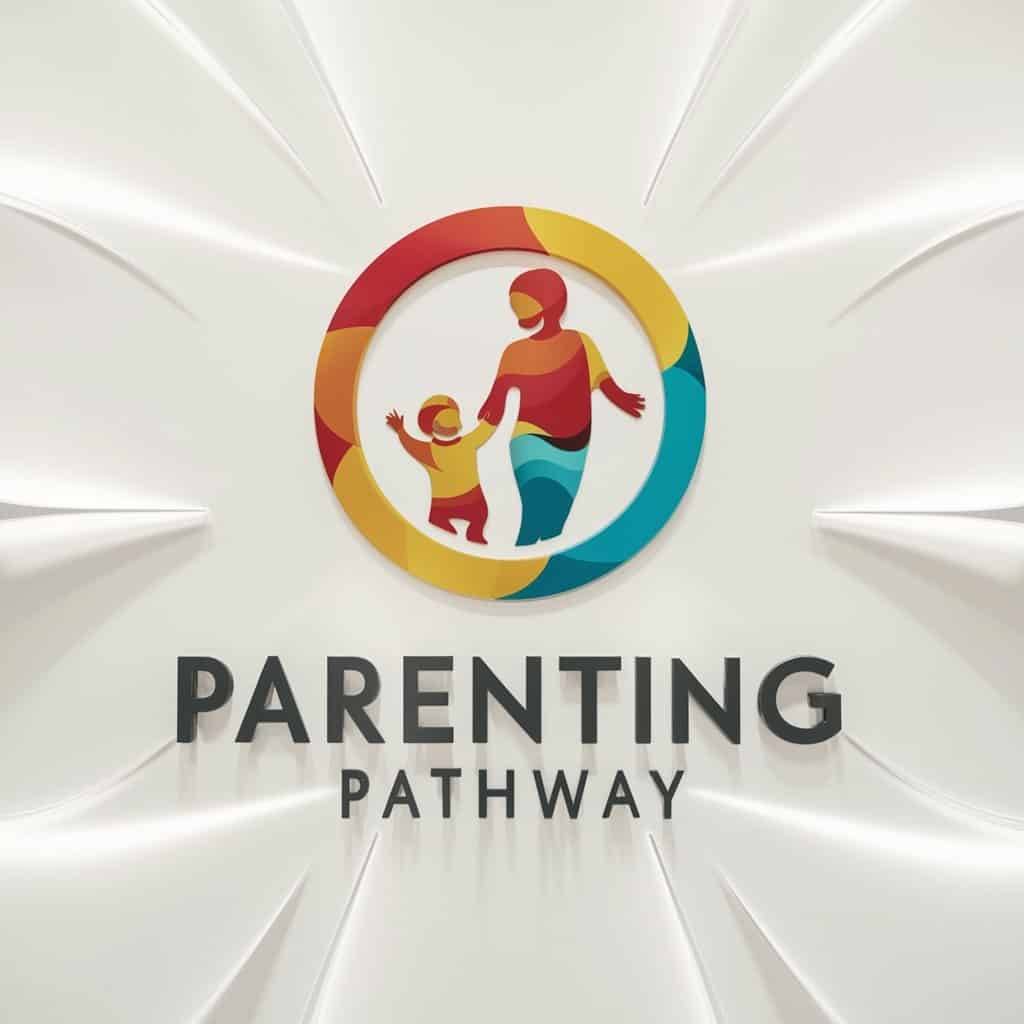What Does A Child Psychologist Actually Do? Roles, Responsibilities, And Treatment Focus
Back to Blog
Understanding the Core Responsibilities of Child Psychologists
Child psychologists play a critical role in understanding and supporting the mental health and emotional development of children and adolescents. These specialized professionals work across multiple environments, helping young individuals navigate complex psychological challenges and developmental stages.
At the core of their practice, child psychologists assess and diagnose various mental health conditions, learning disabilities, and behavioral disorders. They utilize comprehensive evaluation techniques, including standardized psychological tests, interviews, and observational assessments to gain deep insights into a child’s cognitive, emotional, and social functioning.
Professional Assessment Techniques
When working with children, psychologists employ sophisticated diagnostic strategies that consider multiple factors:
- Developmental screening processes
- Behavioral observation protocols
- Family dynamics and environmental influences
- Academic performance evaluations
- Social interaction assessments
Treatment approaches are highly personalized, recognizing that each child’s psychological needs are unique. Child psychologists develop targeted intervention strategies that might involve individual therapy, family counseling, or collaborative approaches with schools and pediatric healthcare providers.
Key Treatment Domains
Child psychologists specialize in addressing numerous psychological challenges, including:
- Anxiety and depression management
- Trauma recovery
- Attention deficit disorders
- Autism spectrum disorder support
- Behavioral modification
- Emotional regulation skills
Their therapeutic interventions often incorporate age-appropriate techniques such as play therapy, cognitive-behavioral strategies, and creative expression methods. These approaches help children communicate complex emotions and experiences that they might struggle to articulate verbally.
Collaborative Professional Approach
Effective child psychology extends beyond direct patient interactions. Professionals frequently collaborate with parents, educators, and other healthcare specialists to create comprehensive support systems. This holistic approach ensures that interventions are consistent across different environments and address the child’s needs comprehensively.
Advanced training enables child psychologists to understand intricate developmental stages and potential psychological disruptions. They recognize how early experiences shape long-term emotional and cognitive outcomes, making their work crucial in preventing future mental health challenges.
Specialized Intervention Strategies
Child psychologists utilize evidence-based intervention models tailored to specific age groups and individual needs. For younger children, interventions might focus on attachment theory and emotional regulation, while adolescent approaches could emphasize identity development and coping mechanisms.
Diagnostic capabilities extend beyond immediate symptom recognition. These professionals conduct thorough psychological assessments that explore underlying causes of behavioral or emotional difficulties, providing comprehensive insights that guide treatment planning.
Research and Continuous Learning
Many child psychologists actively engage in research, contributing to expanding understanding of childhood psychological development. Their work involves studying emerging trends, developing innovative therapeutic techniques, and exploring neurological and environmental factors influencing child mental health.
Professional ethics and confidentiality remain paramount in their practice. Child psychologists maintain strict professional standards, ensuring that children feel safe, respected, and supported throughout their therapeutic journey.
The ultimate goal of child psychology is empowering young individuals to develop resilience, emotional intelligence, and healthy coping mechanisms. By providing compassionate, scientifically-grounded support, these professionals help children navigate challenges and build strong psychological foundations for future growth.
Specialized Treatment Approaches in Pediatric Mental Health
In the dynamic field of pediatric mental health, professionals employ nuanced and innovative treatment strategies tailored specifically to children’s unique psychological needs. These specialized approaches recognize that young minds process emotions and experiences differently from adults, requiring carefully designed interventions.
Child psychologists utilize multiple evidence-based methodologies to address complex mental health challenges. Play therapy emerges as a cornerstone technique, allowing children to communicate complex emotions through structured play activities. By observing interactions with toys, dolls, and creative materials, therapists gain profound insights into a child’s inner emotional landscape.
Cognitive-Behavioral Intervention Strategies
Cognitive-behavioral therapy (CBT) represents a powerful approach in pediatric mental health treatment. This method helps children recognize and modify negative thought patterns, developing healthier coping mechanisms. Therapists work collaboratively with young patients to:
- Identify triggering emotional responses
- Challenge irrational beliefs
- Learn practical emotional regulation skills
- Build resilience against anxiety and depression
Family-Centered Treatment Approaches
Recognizing that a child’s mental health is deeply interconnected with family dynamics, modern treatment models incorporate comprehensive family interventions. These approaches involve parents and siblings in therapeutic processes, creating supportive environments that facilitate healing and emotional growth.
Family therapy sessions might address communication barriers, resolve underlying conflicts, and establish healthy emotional boundaries. By engaging the entire family system, psychologists can create more holistic and sustainable treatment outcomes.
Trauma-Informed Care Techniques
Children experiencing traumatic experiences require specialized, compassionate interventions. Trauma-informed care focuses on understanding the profound neurological and psychological impacts of adverse childhood experiences. Therapists employ gentle, patient-centered techniques that prioritize emotional safety and gradual healing.
Specific trauma treatment modalities might include:
- Eye Movement Desensitization and Reprocessing (EMDR)
- Narrative exposure therapy
- Sensorimotor psychotherapy
- Art and expressive therapy techniques
Neurodevelopmental Intervention Frameworks
For children with neurodevelopmental conditions like autism spectrum disorder or attention deficit hyperactivity disorder, treatment approaches become highly specialized. Psychologists develop individualized intervention plans considering each child’s unique neurological profile, strengths, and challenges.
Applied Behavior Analysis (ABA) and developmental relationship-based interventions offer structured methodologies for supporting neurodivergent children’s social, emotional, and cognitive development.
Technology-Enhanced Treatment Methods
Emerging technological tools are revolutionizing pediatric mental health treatment. Digital platforms, interactive therapeutic games, and teletherapy options provide innovative ways to engage children, making therapeutic experiences more accessible and appealing.
Virtual reality exposure therapy, interactive emotional regulation apps, and online support groups represent cutting-edge approaches that complement traditional therapeutic techniques.
Culturally Responsive Treatment Models
Modern child psychology emphasizes culturally sensitive treatment frameworks. Psychologists recognize that cultural background significantly influences emotional expression, communication styles, and healing processes. By integrating cultural competence into treatment strategies, professionals create more inclusive and effective therapeutic environments.
These specialized treatment approaches demonstrate the complexity and compassion inherent in pediatric mental health care. By employing multifaceted, evidence-based methodologies, child psychologists support young individuals in navigating emotional challenges, fostering resilience, and promoting holistic psychological well-being.
Common Childhood Psychological Challenges and Interventions
Children experience a wide range of psychological challenges that can significantly impact their emotional development, social interactions, and overall well-being. Understanding these challenges and implementing effective interventions is crucial for supporting young individuals through their developmental journey.
Anxiety Disorders in Childhood
Anxiety disorders represent one of the most prevalent psychological challenges children face. These conditions can manifest in various forms, including:
- Generalized anxiety disorder
- Social anxiety
- Separation anxiety
- Specific phobias
Professional interventions typically involve a combination of cognitive-behavioral therapy (CBT), family counseling, and sometimes carefully monitored medication. Therapists work closely with children to develop coping mechanisms, challenge negative thought patterns, and build emotional resilience.
Attention and Behavioral Challenges
Conditions like Attention Deficit Hyperactivity Disorder (ADHD) significantly impact a child’s ability to focus, regulate emotions, and interact effectively with peers and adults. Comprehensive treatment approaches often include:
- Behavioral modification strategies
- Educational support plans
- Individualized therapy sessions
- Potential medication management
Psychologists collaborate with parents, teachers, and other professionals to create holistic intervention strategies that address the child’s unique needs and strengths.
Trauma and Emotional Resilience
Children who experience traumatic events may develop complex emotional responses that require specialized psychological support. Trauma-informed interventions focus on:
- Creating safe emotional environments
- Developing healthy coping mechanisms
- Processing difficult experiences
- Rebuilding a sense of security
Play therapy, art therapy, and narrative techniques are often employed to help children express and work through challenging emotional experiences in age-appropriate ways.
Neurodevelopmental Considerations
Psychological challenges associated with neurodevelopmental conditions like autism spectrum disorder require nuanced and individualized approaches. Interventions are designed to:
- Enhance communication skills
- Improve social interactions
- Develop adaptive functioning
- Support sensory integration
Child psychologists work extensively with families to create comprehensive support systems that recognize and celebrate each child’s unique neurological profile.
Mood and Emotional Regulation
Depression and mood disorders in children are increasingly recognized as significant psychological challenges. Early intervention strategies focus on:
- Identifying underlying emotional triggers
- Teaching emotional regulation techniques
- Building positive self-image
- Developing healthy emotional expression
Therapeutic approaches are carefully tailored to the child’s developmental stage, ensuring that interventions are both effective and age-appropriate.
Family and Environmental Factors
Psychological challenges are often influenced by family dynamics, environmental stressors, and social interactions. Child psychologists take a holistic approach, examining:
- Family communication patterns
- School environment
- Peer relationships
- Broader social contexts
By understanding these complex interactions, professionals can develop more comprehensive and effective intervention strategies that support the child’s overall psychological well-being.
The field of child psychology continues to evolve, with increasing emphasis on personalized, compassionate approaches that recognize each child’s unique emotional landscape. Through targeted interventions and ongoing support, children can develop the resilience and skills necessary to navigate psychological challenges and thrive.
Assessment and Diagnostic Techniques for Child Psychology
Comprehensive Clinical Interviews
Clinical interviews form the foundational approach for psychological assessment. Child psychologists conduct structured and semi-structured interviews with children, parents, and caregivers to collect comprehensive background information. These interviews explore:
- Family history and dynamics
- Developmental milestones
- Current behavioral patterns
- Academic performance
- Social interactions
Standardized Psychological Testing
Psychologists implement evidence-based standardized assessment tools designed specifically for children. These tests measure various psychological domains, including:
- Intelligence quotient (IQ)
- Cognitive processing abilities
- Emotional regulation
- Neuropsychological functioning
- Behavioral adaptability
Such tests provide quantitative data that help professionals understand a child’s unique psychological profile and potential developmental challenges.
Observational Assessment Techniques
Direct observation represents a critical diagnostic strategy where psychologists systematically monitor children’s behaviors in different environments. This technique allows professionals to:
- Evaluate social interactions
- Assess emotional responses
- Understand communication skills
- Identify potential developmental delays
- Recognize potential neurodevelopmental conditions
Observations might occur in clinical settings, schools, or home environments to capture comprehensive behavioral insights.
Neuropsychological Evaluation
Advanced neuropsychological assessments help identify underlying cognitive processing challenges. These evaluations examine brain-behavior relationships through specialized tests measuring:
- Attention span
- Memory functioning
- Executive functioning
- Language processing
- Motor skill coordination
Such evaluations are particularly crucial for diagnosing conditions like ADHD, learning disabilities, and autism spectrum disorders.
Projective Psychological Techniques
Projective assessments provide nuanced insights into a child’s unconscious thoughts and emotional experiences. These techniques include:
- Drawing assessments
- Storytelling exercises
- Play therapy observations
- Imaginative scenario interpretations
These methods allow children to express complex emotions and experiences through creative mediums, offering valuable psychological insights.
Multidisciplinary Diagnostic Approach
Child psychologists frequently collaborate with other healthcare professionals to develop comprehensive diagnostic understanding. This collaborative approach might involve:
- Pediatricians
- Occupational therapists
- Speech language pathologists
- Educational specialists
Interdisciplinary consultations ensure holistic assessment and targeted intervention strategies.
Technological Assessment Tools
Modern child psychology increasingly incorporates technological assessment methods, including:
- Computerized cognitive testing
- Virtual reality simulations
- Neuroimaging techniques
- Digital behavioral tracking
These advanced technologies provide objective, precise measurements of psychological functioning.
The intricate process of psychological assessment requires sophisticated techniques, professional expertise, and compassionate implementation. Child psychologists must balance scientific rigor with emotional sensitivity, ensuring accurate diagnoses while maintaining a supportive, child-centered approach.
Professional Development and Ethical Considerations in Child Psychology
Continuous Learning and Skill Enhancement
Child psychologists recognize that professional growth is a critical component of providing exceptional care. Ongoing education involves attending specialized workshops, participating in advanced training programs, and staying current with the latest research in developmental psychology. These professionals continuously update their knowledge about emerging therapeutic techniques, neurological developments, and innovative intervention strategies.
Ethical Framework in Child Psychology
Maintaining the highest ethical standards is paramount in child psychology. Practitioners must navigate complex situations while prioritizing the child’s well-being and protecting their vulnerable status. This involves implementing strict confidentiality protocols, obtaining informed consent from parents or guardians, and ensuring that all treatment approaches respect the child’s emotional and psychological boundaries.
Navigating Complex Ethical Dilemmas
Child psychologists frequently encounter challenging scenarios that require nuanced ethical decision-making. These might include:
- Balancing parental wishes with the child’s psychological needs
- Identifying and reporting potential instances of abuse or neglect
- Maintaining professional boundaries while providing compassionate care
- Protecting client confidentiality while ensuring safety
Specialized Training and Credentials
Professional development in child psychology extends beyond basic qualifications. Many practitioners pursue advanced certifications in specialized areas such as:
- Pediatric trauma intervention
- Neurodevelopmental disorders
- Child and adolescent behavioral therapy
- Developmental psychology assessment
These specialized credentials demonstrate a commitment to comprehensive and expert-level care for young patients.
Interdisciplinary Collaboration
Effective child psychologists understand the importance of collaborative approaches. They regularly engage with:
- Pediatricians
- School counselors
- Family therapists
- Educational specialists
This collaborative network ensures a holistic understanding of a child’s psychological and developmental context.
Addressing Cultural Sensitivity
Modern child psychology emphasizes cultural competence as a critical aspect of professional development. Practitioners must develop skills to:
- Recognize and respect diverse cultural backgrounds
- Understand cultural influences on psychological development
- Adapt therapeutic approaches to individual cultural contexts
- Minimize potential cultural biases in assessment and treatment
Legal and Regulatory Compliance
Professionals must remain informed about evolving legal standards governing child psychology. This includes understanding mandatory reporting requirements, privacy regulations, and consent protocols that protect both the child and the therapeutic relationship.
Self-Care and Professional Resilience
Working with children experiencing psychological challenges can be emotionally demanding. Successful practitioners prioritize their own mental health through:
- Regular supervision and peer consultation
- Personal therapy or counseling
- Stress management techniques
- Maintaining appropriate professional boundaries
Research and Innovation
Leading child psychologists contribute to the field’s advancement by engaging in research, publishing scholarly articles, and participating in academic conferences. This commitment ensures that treatment methodologies continue to evolve and improve.
Technology Integration
Modern professional development includes understanding and implementing technological tools in psychological assessment and treatment. This encompasses telehealth platforms, digital assessment instruments, and innovative therapeutic technologies that can enhance patient engagement and treatment effectiveness.
By maintaining rigorous professional standards, continuously expanding their knowledge, and prioritizing ethical considerations, child psychologists create a robust framework for supporting children’s psychological well-being and healthy development.
Key Takeaway:
Key Takeaway: Comprehensive Child Psychology Insights
Child psychologists play a critical and nuanced role in supporting children’s mental health and developmental well-being through a holistic, compassionate, and scientifically-grounded approach. Their work extends far beyond simple problem-solving, representing a complex blend of clinical expertise, empathetic understanding, and specialized intervention strategies.
The core responsibilities of child psychologists involve a multifaceted approach to understanding and addressing children’s psychological needs. They are not just therapists, but comprehensive mental health professionals who work closely with children, families, schools, and healthcare systems to create supportive environments for psychological growth and healing.
Specialized treatment approaches are fundamental to their practice. Unlike adult psychology, child psychology requires developmentally sensitive interventions that consider the unique cognitive, emotional, and social stages of childhood. These professionals utilize play therapy, cognitive-behavioral techniques, family systems therapy, and age-appropriate counseling methods to engage children effectively.
When addressing common childhood psychological challenges, child psychologists tackle a wide range of issues including anxiety, depression, trauma, behavioral disorders, learning disabilities, and neurodevelopmental conditions. Their interventions are customized, recognizing that each child’s experience is unique and requires personalized attention.
Assessment and diagnostic techniques form a crucial component of their professional toolkit. Through comprehensive evaluations, standardized testing, observational assessments, and collaborative discussions with parents and educators, they develop nuanced understandings of a child’s psychological landscape. These assessments help create targeted intervention strategies that support the child’s specific needs.
Professional development and ethical considerations are paramount in this field. Child psychologists must continuously update their knowledge, engage in ongoing training, and maintain the highest ethical standards. They are mandated reporters who prioritize child safety, confidentiality, and holistic well-being.
The ultimate goal of child psychology is not merely to treat symptoms but to foster resilience, emotional intelligence, and healthy psychological development. By providing supportive, evidence-based interventions, child psychologists help children navigate complex emotional terrains, develop coping mechanisms, and build strong foundations for future mental health.
Their work represents a profound commitment to understanding the intricate world of childhood psychology, recognizing that early psychological support can dramatically influence a child’s long-term emotional and social outcomes.
Conclusion
Child psychologists play a pivotal role in supporting children’s mental health and developmental well-being. Their comprehensive approach encompasses not just treatment, but holistic understanding and intervention across multiple dimensions of a child’s psychological landscape. By integrating specialized assessment techniques, targeted therapeutic interventions, and a deep commitment to ethical practice, these professionals help children navigate complex emotional and behavioral challenges.
The intricate work of child psychologists extends far beyond traditional counseling. They serve as critical advocates, educators, and support systems for children experiencing diverse psychological difficulties. Whether addressing developmental disorders, trauma, anxiety, or behavioral issues, these experts employ evidence-based strategies tailored to each child’s unique needs.
Professional growth and continuous learning remain fundamental to effective child psychology practice. Staying updated with the latest research, diagnostic tools, and treatment methodologies ensures that child psychologists can provide the most advanced and compassionate care possible. Their dedication to understanding childhood psychological dynamics represents a profound commitment to nurturing healthy emotional development.
Ultimately, child psychologists are instrumental in transforming young lives. By identifying potential challenges early, developing personalized intervention strategies, and supporting both children and their families, they contribute significantly to long-term mental health outcomes. Their work represents a critical intersection of scientific expertise, empathetic understanding, and genuine commitment to helping children thrive.
The field of child psychology continues to evolve, promising more sophisticated, nuanced approaches to understanding and supporting children’s psychological well-being. As our understanding deepens, so too does our capacity to provide meaningful, impactful support for the most vulnerable members of our society.




Leave a Reply